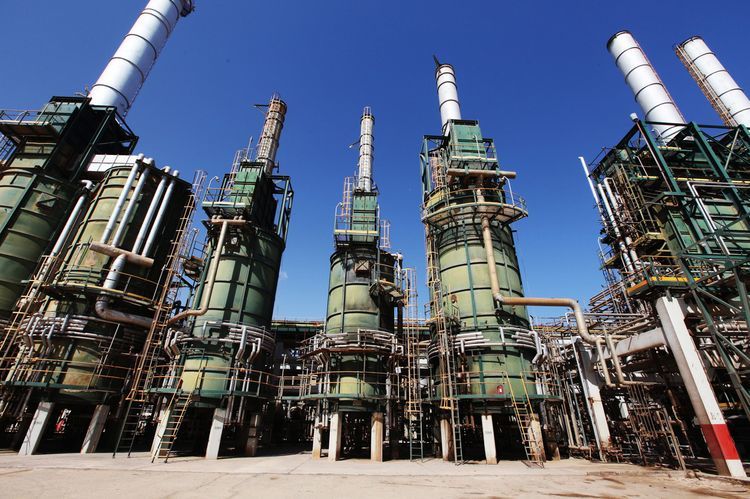
Oil traded near $46 a barrel after snapping a five-day gain on concern output in the US and Opec member Libya is growing just as demand shows signs of improvement.
Futures were little changed in New York after sliding 1.1 percent Monday, paring last week’s 5.2 percent gain. Output from major U.S. shale plays will reach 5.58 million barrels a day in August, an all-time high, the Energy Information Administration said in a monthly report. Libya has increased production to 1.1 million barrels a day, according to a person familiar with the matter.
Libya, which is exempt from an output-cut deal between the Organization of Petroleum Exporting Countries and its allies to shrink a glut, is boosting production as prices in New York languish below $50 a barrel on concern ample global supplies will offset OPEC’s curbs. That’s at a time of the year when demand for gasoline typically increases as Americans take more driving vacations during the summer.
“Capping Libya’s production is currently being discussed, so we shall see if they end up participating in the output-cut deal,” Min Byungkyu, a global market strategist at Yuanta Securities Co., said by phone in Seoul. “Looking at the big picture, the global oil market is in the gradual process of rebalancing with demand starting to rise faster than supplies.”
Supply Glut
West Texas Intermediate for August delivery was at $46.08 a barrel on the New York Mercantile Exchange, up 6 cents, at 1:04 p.m. in Seoul. Total volume traded was about 13 percent below the 100-day average. Prices dropped 52 cents to $46.02 a barrel Monday.
Brent for September settlement added 9 cents to $48.51 a barrel on the London-based ICE Futures Europe exchange. The contract on Monday lost 49 cents, or 1 percent, to $48.42. Prices climbed 4.7 percent last week. The global benchmark crude traded at a premium of $2.21 to WTI.
Citigroup Inc. cut its oil-price forecasts for this year and next as Libya and fellow OPEC member Nigeria, which is also exempt from the output-cut deal, restore previously halted supplies and as American production climbs. It reduced projections for both Brent and WTI crudes in the second half of this year by $7 a barrel, predicting averages of $55.50 and $52.50, respectively.
Oil-market news:
Crude inventories in the U.S. decreased 3.6 million barrels in the week ended July 14, according to a Bloomberg survey before government data due on Wednesday. Ecuador will fail to honor its pledge to cut output as part of the broader deal between OPEC and its partners to lower global oil supply and plans a “gradual” production increase, according to the country’s oil minister.